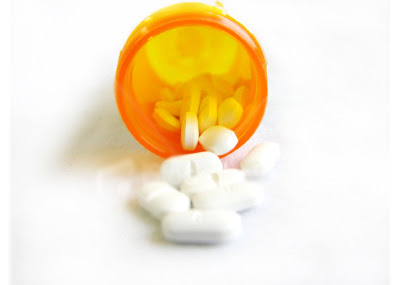
In the United Kingdom, a patient visits a general practitioner who is able to prescribe medicines. If given an NHS prescription, this can be taken to a pharmacy to be dispensed. District nurses and health visitors have had limited prescribing rights since the mid-nineties where prescription for dressings and simple medicines would have had to have been signed by a doctor. Extended prescribing was introduced in late 1999, where appropriately trained nurses could prescribe from a limited list of POMs. From 2006, some nurses and pharmacists will be permitted to prescribe all medicines in the British National Formulary, except controlled drugs directly. Each item on the prescription is liable to a prescription charge in England and Scotland of £6.85 (as of April 2007), although many patients are exempt from this charge. This includes those over 60, under 16 (or under 19 if in full-time education), patients with certain medical conditions and those on certain benefits. However in Wales prescription charges have been abolished - a situation the SNP government of Scotland hopes to emulate within the next four years.
An HC2 certificate can be applied for — although not automatically granted — by those on a low income or in receipt of incapacity benefit. Claimants of "Jobseekers" and "Income support" automatically receive free prescriptions and dentistry.
Those requiring regular prescriptions may make a saving by purchasing a pre-payment certificate which covers the cost of all prescriptions required for four months or a year. This charge is paid entirely to the NHS through the pharmacy, while the pharmacy claims the cost of the medicine dispensed. Each "item" can cover any prescribed item in a very large or very small quantity according to the doctor's prescription. This means that the patients perceived "value" of the charge varies enormously - the actual cost of the medicine given out will routinely vary from a few pence to hundreds of pounds.
The majority of items dispensed on NHS prescription are exempt from charges. This is because of the large number of medicines needed by, for example, the elderly or those with medical exemptions. NHS prescriptions can also be written for certain items by dentists and nurses. Some patients also receive private prescriptions, typically either from a doctor seen privately or for medicine not permitted on the NHS. For these, the patient will pay the pharmacy directly for the cost of the medicine and the pharmacy's markup.

 An aspirin a day will help prevent a heart attack if you have it for lunch instead of a cheeseburger.
An aspirin a day will help prevent a heart attack if you have it for lunch instead of a cheeseburger. Medications may be divided into over-the-counter drugs (OTC) which may be available without special restrictions, and prescription only medicine (POM).
Medications may be divided into over-the-counter drugs (OTC) which may be available without special restrictions, and prescription only medicine (POM).
No comments:
Post a Comment